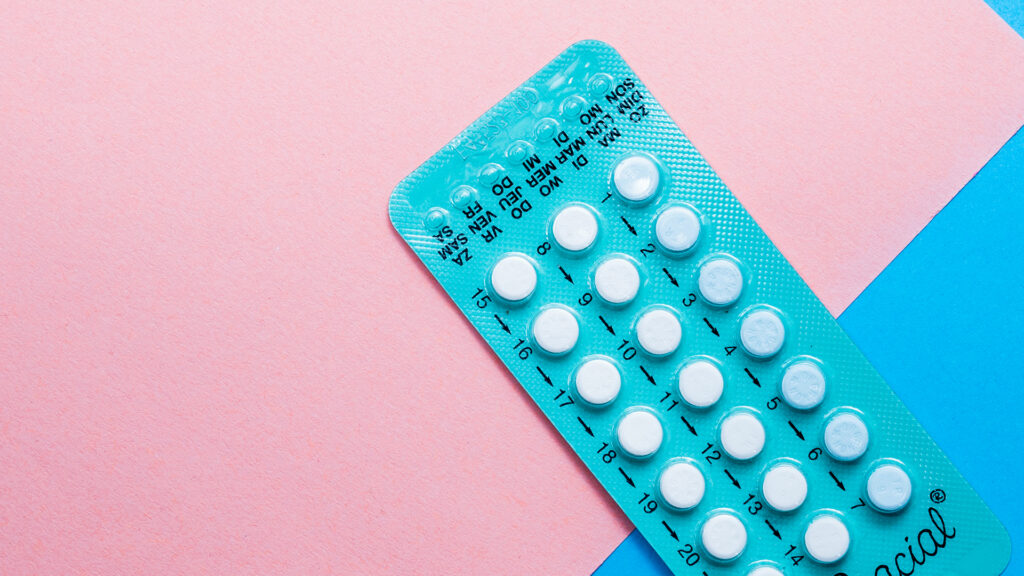WASHINGTON — There’s a new final frontier in the world of antibodies: the immobilization of sperm before it can reach an egg.
Researchers at the University of North Carolina at Chapel Hill have engineered ultra-potent antibodies that—during animal testing—effectively trapped and blocked more than 99.9 percent of human sperm.
Monoclonal antibodies are known for fighting off invading germs and are used to treat and prevent everything from cancer to Covid-19.
They are using the precision targeting of monoclonal antibodies for a new type of female non-hormonal contraception.
The findings of the research were published in the journal “Science Translational Medicine.”
The study results suggest contraceptives based on antibodies may offer women a non-hormonal option to prevent pregnancy.
“Many women avoid hormonal contraception because of real and perceived side effects,” said Samuel Lai, professor in the Division of Pharmacoengineering and Molecular Pharmaceutics at the University of North Carolina’s Eshelman School of Pharmacy.
These effects can include irregular bleeding, nausea, depression, weight gain, and migraines. And for some women, estrogen-based hormonal contraception can be harmful.
“There’s a major unmet need for alternative, non-hormonal contraceptives for women,” said Lai.
Nearly half of all pregnancies in the United States are unintended, and Lai is among scientists across the country who are advancing the idea of using anti-sperm antibodies for contraception.
Infertility in women and its resultant antibodies against sperm gave the scientists the cue, said the first author of the study, Bhawana Shrestha.
“We were inspired by infertility that occurs in some women who develop antibodies against their partner’s sperm,” said Shrestha, a doctoral student in the Department of Microbiology and Immunology at the University of North Carolina’s School of Medicine and graduate research assistant at the school of pharmacy.
The antibody they are testing was isolated from an infertile woman and targets a unique surface antigen present on human sperm. When it is added to sperm, the sperm quickly clump together.
“Using our highly multivalent IgG (Immunoglobulin G— the most common antibody) platform, we engineered antibodies that were more than 10 to 16 times more potent at agglutinating sperm and reducing sperm permeation through mucus than the best-known antibody,” said Shrestha.
Researchers explored the effect of antibodies in sheep, which have reproductive tracts similar to human females.
At a high dose of 333 micrograms of antibody, both naturally occurring antibodies and the newly engineered antibodies effectively stopped all human sperm motility, and at a low dose of 33.3 micrograms, the modified antibodies—but not the original ones—trapped 97 percent to 99 percent of sperm.
But monoclonal antibodies are known as expensive drugs, which puts their usefulness as an affordable contraceptive up in the air.
However, researchers believe that much lower doses of multivalent antibodies may be needed for effective contraception by increasing potency.
“We think these second-generation molecules will provide not only greater potency but will translate to lower costs that make the approach cost-effective,” said Lai.
Mucommune—a startup spun out of the Lai Lab—has licensed the molecule for the development of an antibody-based contraceptive.
The company will focus on safety and manufacturing to prepare for human clinical trials in 2023.
The team is working on incorporating the antibodies into an intravaginal ring that steadily releases the antibodies or a dissolvable film placed in the vagina where it spreads antibodies before sex.
“By avoiding exogenous hormones and creating a women-controlled contraceptive method, we believe the antibodies developed here could meet the contraceptive needs for millions of women, help to reduce the number of unintended pregnancies and alleviate the health care costs of unintended pregnancies, which some estimate to be in excess of $20 billion a year,” Lai said.
The study team included researchers from the University of North Carolina-Chapel Hill, University of Texas Medical Branch, Boston University School of Medicine, and Mucommune.
It was funded by the National Institutes of Health, the Eshelman Institute of Innovation, the Packard Foundation for Science and Engineering, the National Science Foundation, and the PhRMA Foundation.
(With inputs from ANI)
Edited by Saptak Datta and Krishna Kakani
The post Hormonal Contraception Could Give Way For Engineered Antibodies To Block Sperm: Study appeared first on Zenger News.

